
Anemone Fish in white Anemone Clown fish, Scuba diving photography

11 Location Katy Rating - 0% 0 0 0 Hello everyone, My daughter and I are new to saltwater fish tanks. We have had our 75gal tank now for just over a year and have had some white clowns, a cardinal and a goby for quite some time. This weekend we purchased 2 additional clowns and a couple or wrasse.
REEF Pacific NW Invertebrate ID Course pnwscuba Cnidarios

An anemone has a single opening in the center of an oral disc, by which it consumes food and excretes waste. At the Aquarium, they are fed pieces of shrimp, fish and krill. Most anemones are small, but some can grow as large as 6.5 feet in diameter. Most anemone species are non-threatened, but there are a few considered vulnerable.
White sea anemone stock photo. Image of life, saltwater 55627990

The most obvious difference between these two creatures is that corals have a skeleton of calcium carbonate, which helps form their complex and rigid structures. Anemones, on the other hand, are soft and malleable. Another difference is that once a coral formation begins to grow, it is completely stationary. While anemones also prefer to stick.
Corals and sea anemones (anthozoa) Smithsonian's National Zoo
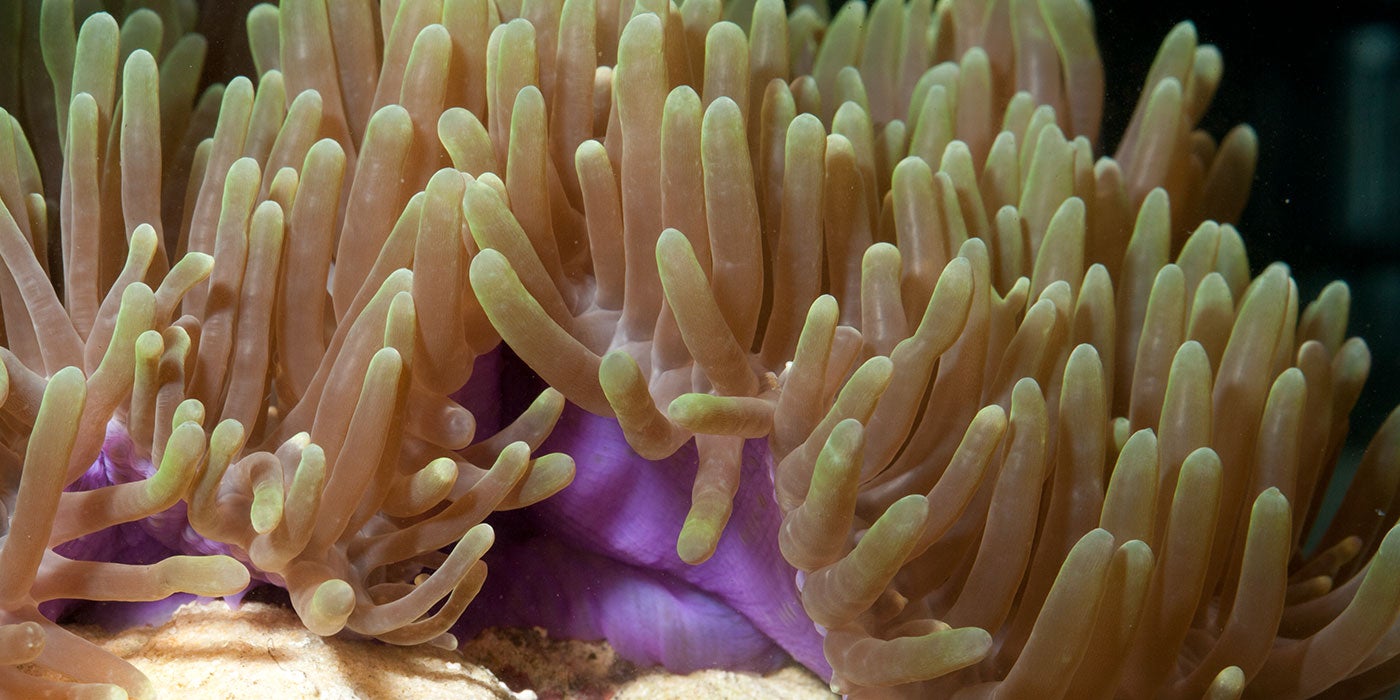
11 Types of Sea Anemones to Add Movement to Marine Tanks Updated on Aug 9, 2021 by Peter Herzog What walks without feet, captures prey without eyes, and looks stunning in a reef tank? Sea anemones! These oceanic flowers enchant aquarists with their floating tentacles, available in a variety of gorgeous colors.
WHAT IS THIS ANEMONE CALLED r/ReefTank
Sea anemones are a firm favorite for many saltwater aquarium enthusiasts. Anemones are closely related to corals. These beautiful and interesting animals are found all over the world on tropical and subtropical reefs. They are iconic in form, known for their long and often brightly colored or interestingly shaped tentacles that sting.
Free photo Macro Photography Of White Coral Anemone, Aquarium
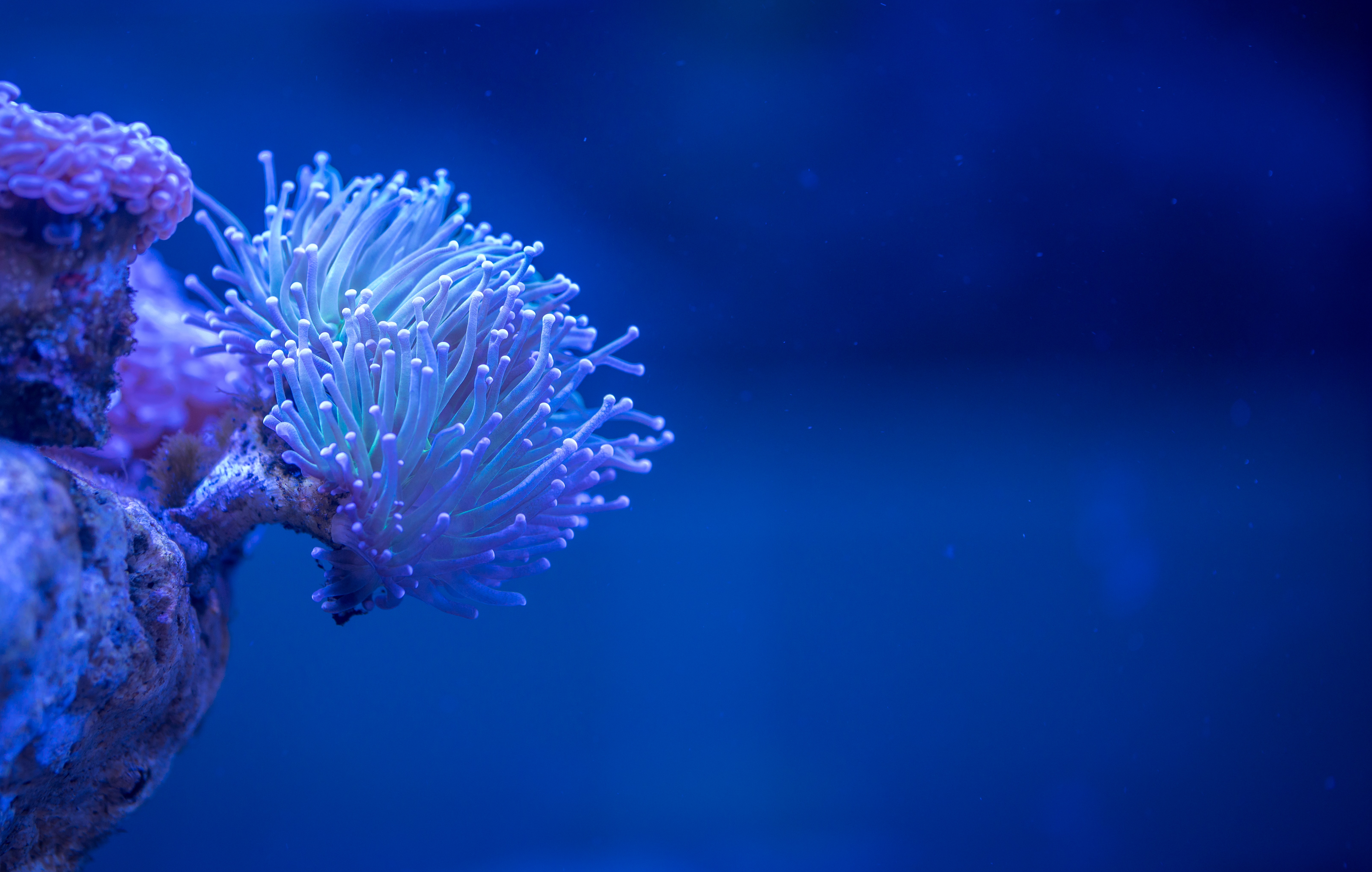
A showy anemone that has a distinct red pedal column decorated with many white dots, thus, it is also known as the Strawberry Anemone. The unique and attractive coloring makes the White-spotted Rose Anemone one of the easiest of the sea anemones to identify. It is also fairly small, only growing to about 4″ (10 cm) in diameter and 6†(15 cm) tall.
Sea Anemone sea anemone is a polyp attached at the bottom … Flickr
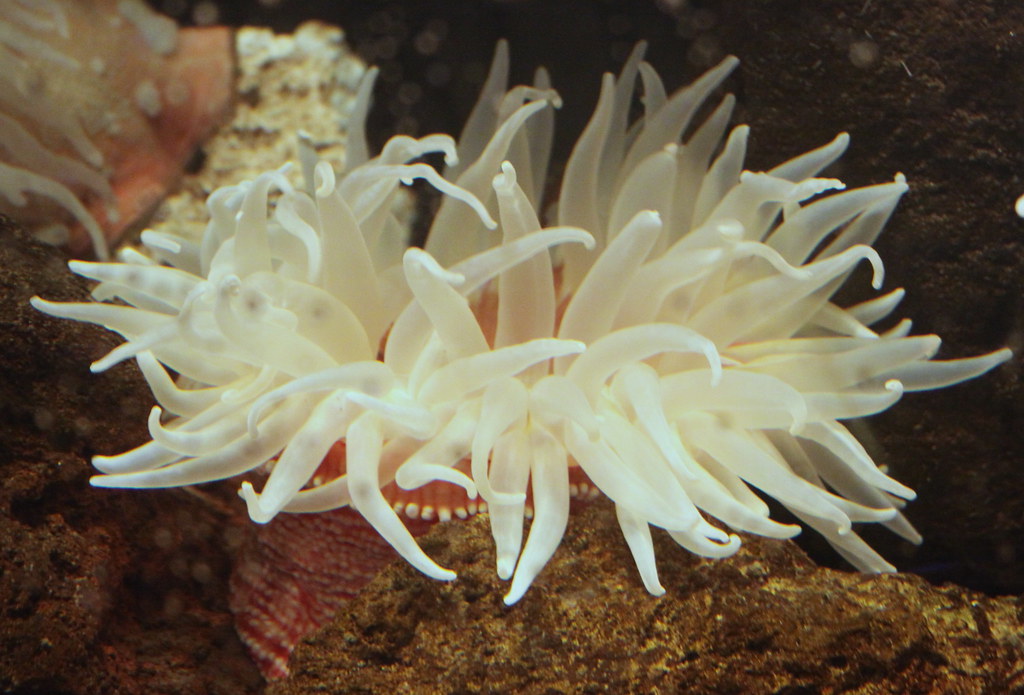
Unlocking the Beauty of the White Anemone Coral: A Comprehensive Guide The White Anemone Coral, scientifically known as Anemonia spp., is a stunning coral species that graces marine aquariums with its elegant appearance. In this blog post, we'll take a closer look at the White Anemone Coral, from its scientific
Sea Anemones Wallpapers High Quality Download Free

The rare and highly poisonous berried anemone of the Diaphus Bank. (HR) Fields of white anemones along with a occasional orange gorgonians. A deep-water anemone. (HR) White-plumed anemone on the ocean bottom. (HR) A flytrap anemone. An unknown species of jellyfish. A jellyfish. (HR) Sea anemone. A large grouping of deep ocean sea anemones
White sea anemone Stock Video Footage 0011 SBV306182141 Storyblocks

The anemone provides protection for the clownfish, and the clownfish in turn provides food for the anemone. Below is a listing of some of the more common members of the cnidaria group. Photo © Aris Entertainment Pineapple Coral (Montastrea cavernosa) The pineapple coral is a species whose small polyps form flat, honeycomb patterns.
Anemones, Coral reefs and Colombia on Pinterest

Most Anemones are sessile with a specialized foot used to anchor them in soft substrates or attach themselves to rocks and corals. Provide excellent water conditions, moderate to strong current, and intense lighting. Bits of shrimp or other meaty foods can be used to supplement their diet. 22 results Mini Carpet Anemone (Stichodactyla tapetum)
WHITE ANEMONE Wholesale Bulk Flowers Cascade Floral
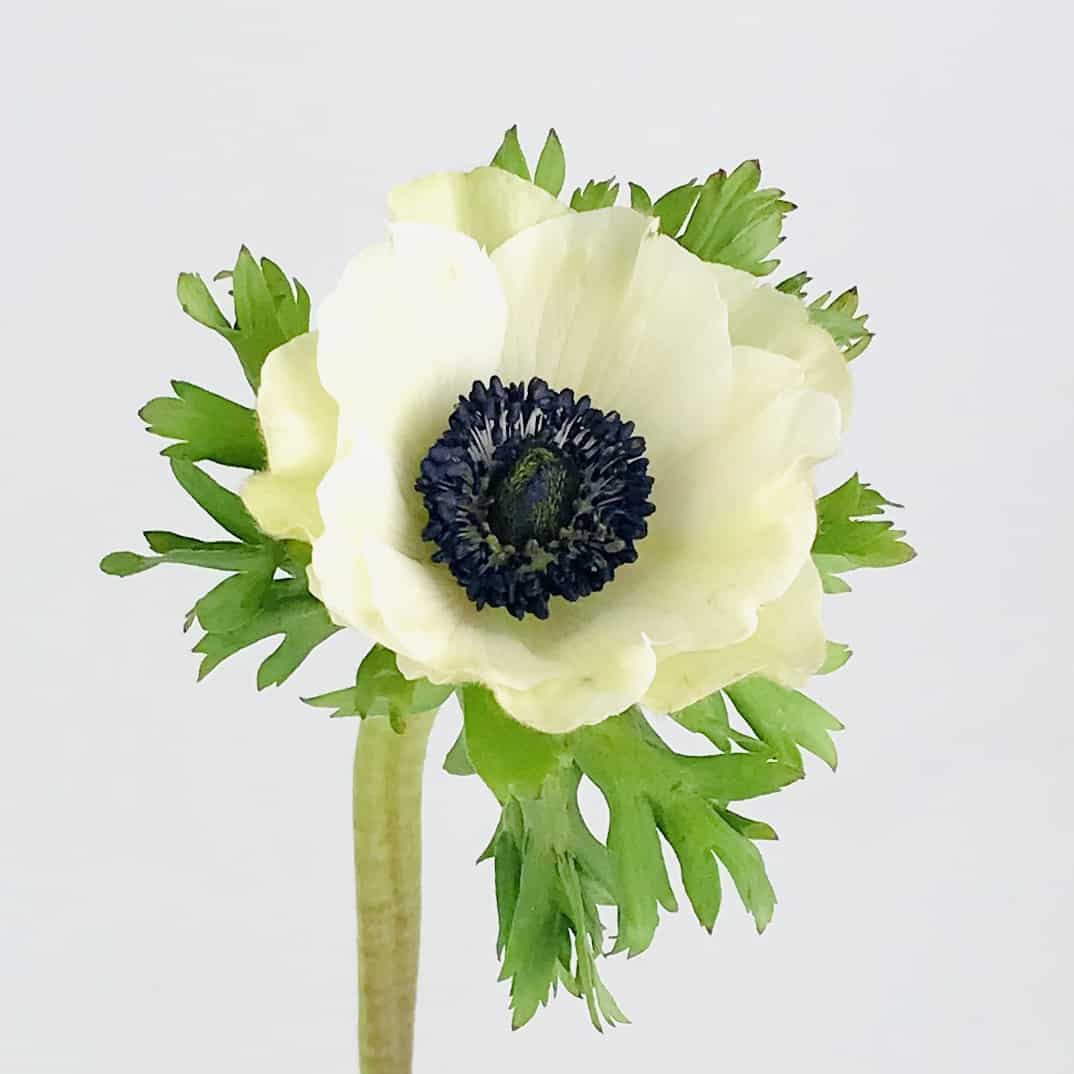
Sea Anemones Scientific Name: Actiniaria Type: Invertebrates Diet: Carnivore Size: Diameter: 0.5 inches to 6 feet Size relative to a teacup: The ornately colored sea anemone (uh-NEM-uh-nee) is.
White anemone stock image. Image of reef, white, life 3491371
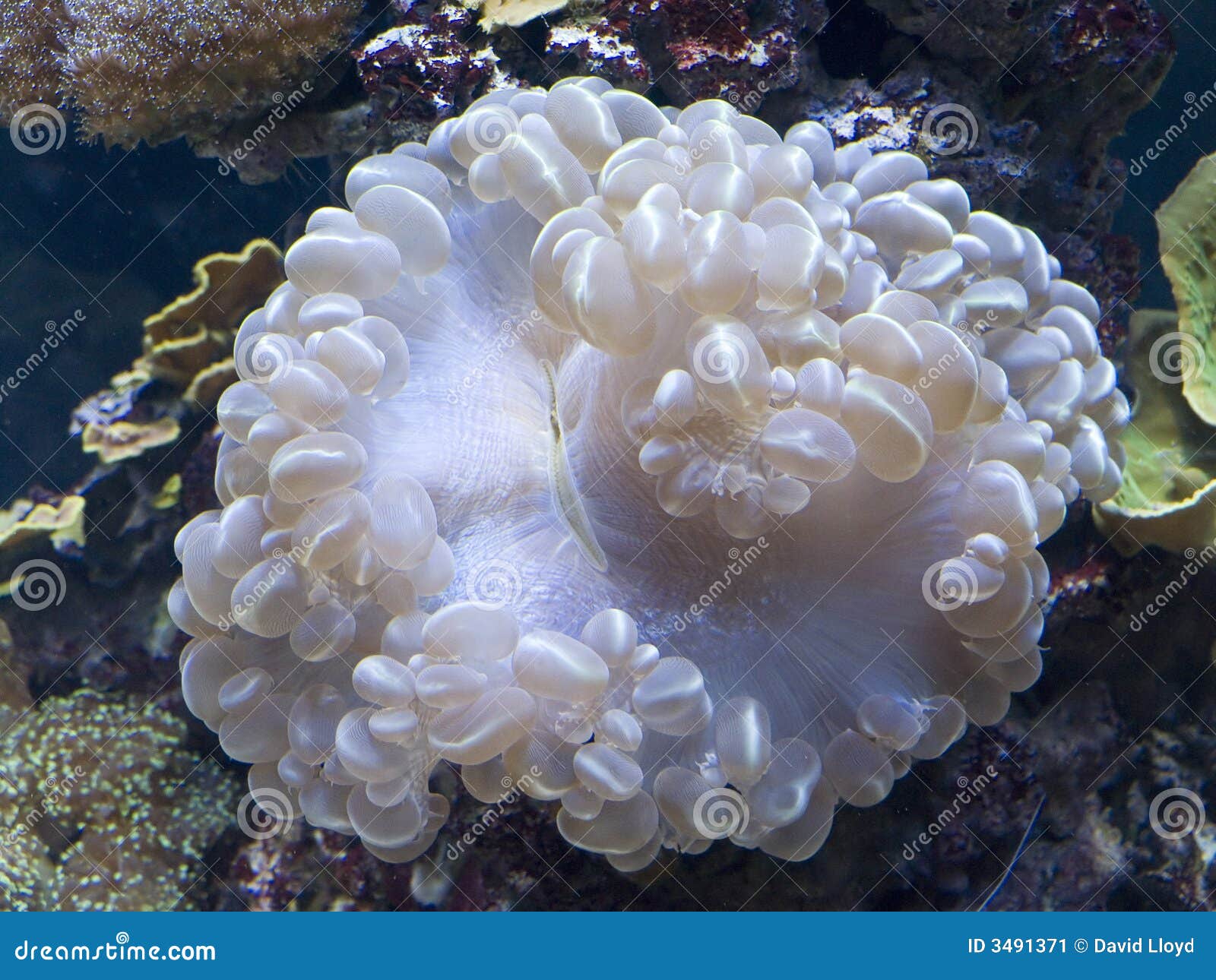
Habitat: Distribution / Background. Sea Anemone Facts: The Giant White-Plumed Anemone or Giant Plumose Anemone Metridium giganteum was described by Fautin, Bucklin and Hand in 1989. The Metridium genus is a member of the Metridiidae family, and there are 9 species in this genus. Other common names this anemone is known by are Frilled Anemone, Powder Puff Anemone, Sun Anemone, White-Plumed.
White Anemone{black center} White & Ivory Flower Types Pinterest

Sea anemones are classified as a type of polyp, which is a cylindrical, tentacled animal that attaches itself to a surface. On the other hand, coral is a colony of polyps that secrete a hard, calcium carbonate skeleton, forming a structure that is often mistaken for a rock or a plant. That's just the beginning.
A White Anemone Photograph by Kirsten Giving Fine Art America
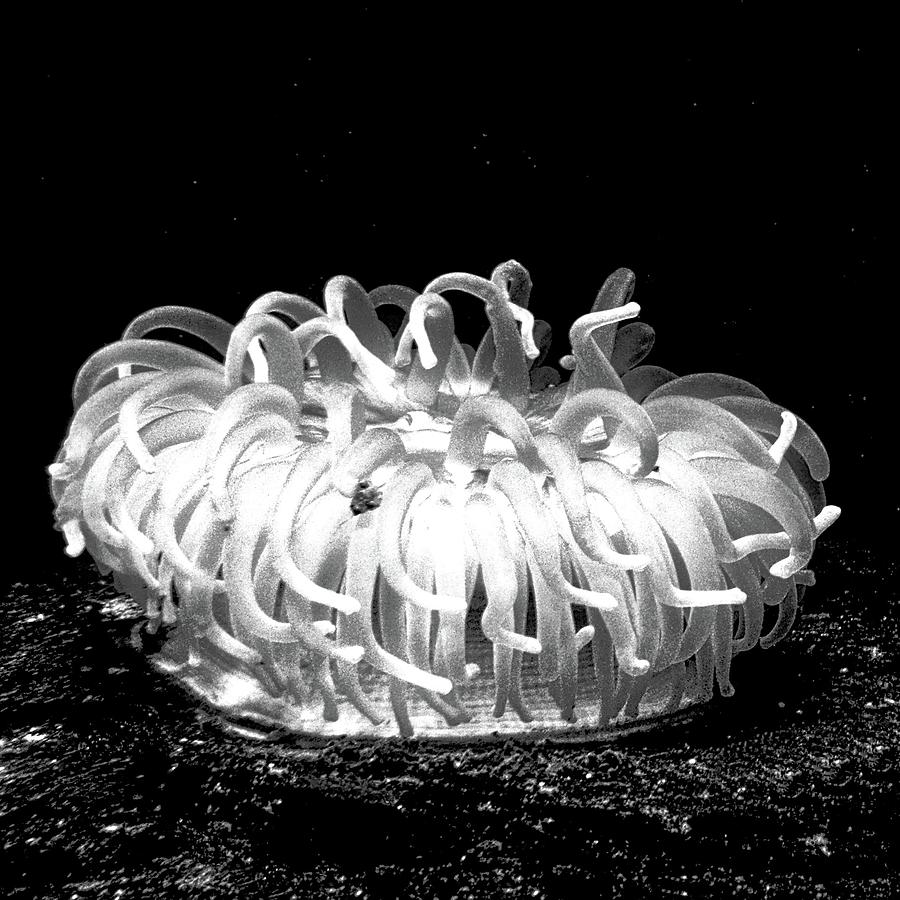
The morphological differences that serve to separate anemones, corals and corallimorphs (i.e. "mushrooms") are not always obvious, and perhaps nowhere do the lines separating these groups blur so much as with a peculiar, tentacled beastie found in many reef aquariums: the so-called "Orange Ball Anemone".
White Anemone Flower Flickr

Sebae Sea Anemone (Heteractis crispa) - Grow up to 12 inches in diameter, and have a purple coloration.Live singly from depths of 10-100 feet with the polyp in crevices with only the tentacles emerging. Sebae anemones can attach themselves to different substrates, such as hard rock, rubble, or the substrate, where they will burrow and attach themselves to the base of the tank.
White Ritteri Anemone MasterFisch UK

These stinging cells, triggered by touch or chemical stimulus, can contain toxins or can be sticky. Within the phylum Cnidaria, the class Anthozoa includes corals, anemones, sea pens and seafans. Anthozoa consists of 10 orders and thousands of species. Adults are attached to the seabed, but their larvae are free-floating and can drift to new.